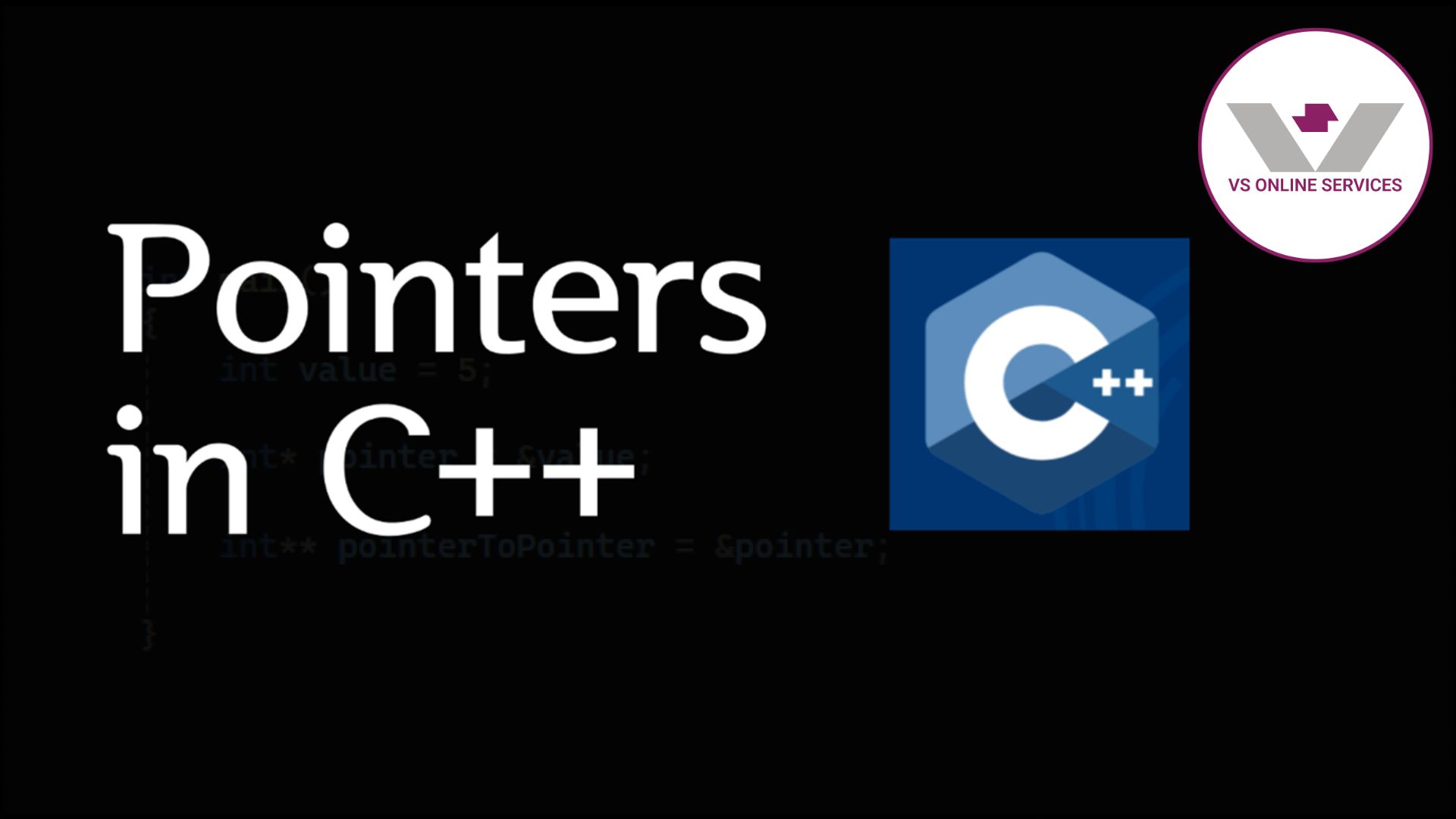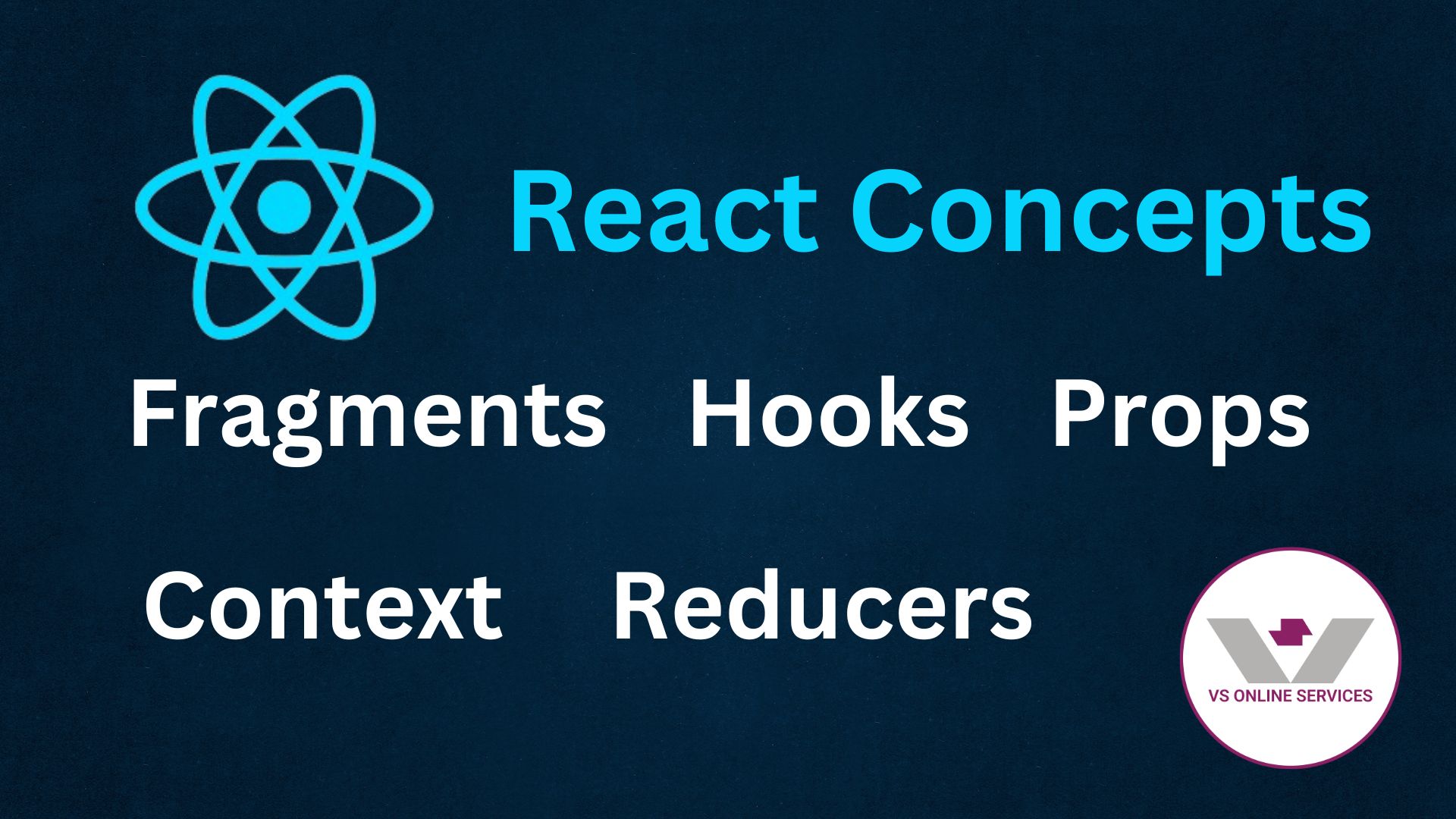12th June 2024
Understanding Pointers in C++

Introduction to Pointers
Pointers are a fundamental feature of many programming languages, particularly C and C++. Understanding pointers can greatly enhance your ability to write efficient and powerful programs. In this blog, we will take you through the journey of mastering pointers, starting from the basics and advancing to more complex concepts.
What is a Pointer?
A pointer is a variable that stores the memory address of another variable. Unlike regular variables that hold data values, pointers hold the address of the variable containing the data. The type of the object must correspond with the type of the pointer.
- Explanation: A pointer is a variable that holds the memory address of another variable. For example, if you have a variable int a = 10;, a pointer to this integer could be declared as int *ptr = & a;, where ptr stores the address of a.
- Syntax: In C and C++, the syntax for declaring a pointer involves using an asterisk (*). For example:
int *ptr;
Here, ptr is a pointer to an integer.
- Pointer Types: Pointers have their own types based on the type of data they point to. For example, a pointer to an int is of type int*, a pointer to a char is of type char*, and so on. This is crucial for pointer arithmetic and dereferencing.
- Void Pointers: A special type of pointer, called a void*, can hold the address of any data type. However, you cannot directly dereference a void* without casting it to another pointer type.
Data Type of Pointers
A pointer stores a memory address, which is typically represented as an unsigned integer value. However, in programming, pointers are more than just integers; they are strongly typed and provide a way to access and manipulate the value stored at the specific memory location they point to.
Declaration and Initialization of Pointers
Declaring a Pointer:
To declare a pointer, you specify the type of the data the pointer will point to, followed by an asterisk (*) and the pointer's name.
int *ptr; // Declares a pointer to an integer
Initializing a Pointer:
To initialize a pointer, you assign it the address of a variable using the address-of operator (&).
int value = 10;
int *ptr = & value;
The Address-of Operator (&)
The address-of operator (&) is used to obtain the memory address of a variable.
int value = 10;
int *ptr = & value; // ptr now holds the address of value
The Dereference Operator (*)
The dereference operator (*) is used to access the value stored at the address held by the pointer.
cpp
Copy code
int value = 10;
int *ptr = & value;
int dereferencedValue = *ptr; // dereferencedValue is 10
Null Pointers
A null pointer is a pointer that does not point to any valid memory location. It is good practice to initialize pointers to NULL (or nullptr in modern C++) if they are not yet assigned a valid address.
Question
Why can't you assign an integer value directly to an integer pointer, but there is no error when assigning a string literal to a char pointer in C++?
const char* t = "Hello";
int* p = new int(5);
Answer
In C++, assigning a direct integer value to an integer pointer results in an error because a pointer is meant to store the address of a memory location, not a direct integer value. For example:
int* p = 5; // Error
This assignment tries to store the integer value 5 directly into the pointer p, which is incorrect since p is supposed to hold an address.
On the other hand, assigning a string literal to a const char* pointer does not produce an error:
const char* t = "Hello"; // No error
Here, "Hello" is a string literal, and its type is const char[6] (including the null terminator). The string literal itself is stored in a read-only section of memory, and the pointer t is assigned the address of the first character of this string literal. Therefore, t correctly holds the address of the character array, which is why this assignment is valid.
Additionally, you can dynamically allocate memory for an integer and assign its address to a pointer without error:
cpp
Copy code
int* p = new int(5); // No error
In this case, new int(5) dynamically allocates memory for an integer, initializes it to 5, and returns a pointer to this memory. This pointer is then correctly assigned to p, which holds the address of the newly allocated integer.
Thus, the key difference lies in the type of data being assigned to the pointers and the nature of pointers storing memory addresses rather than direct values.
C-style Null Pointer:
cpp
Copy code
int *ptr = NULL; // Old C-style null pointer
Modern C++ Null Pointer:
cpp
Qn: What happen when you assign 0 to a pointer?
ans: Zero is not a memeory address it simply assings NULL or nullptr.
References in C++
A reference is an alias for an existing variable. Once a reference is initialized to a variable, it cannot be changed to refer to another variable. References are used for passing variables to functions without copying them, and they provide a more intuitive syntax than pointers.
Declaration and Initialization
To declare a reference, you use the ampersand (&) after the type. Unlike pointers, references must be initialized at the time of declaration.
int value = 12;
int &ref = value; // ref is a reference to value
Using References
Once a reference is initialized, it can be used just like the original variable. Any changes made to the reference will affect the original variable.
int main() {
int value = 12;
int& ref = value; // ref is now an alias for value
cout << "Value: " << value << endl; // Output: Value: 12
cout << "Reference: " << ref << endl; // Output: Reference: 12
ref = 20; // Changing the value through the reference
cout << "Value after change: " << value << endl; // Output: Value after change: 20
cout << "Reference after change: " << ref << endl; // Output: Reference after change: 20
return 0;
}
Passing arguments by reference in C++ offers several advantages, including:
- Avoiding Copying: Passing arguments by reference avoids unnecessary copying of large objects or data structures, leading to better performance and memory usage.
- Modifying Original Values: Functions can directly modify the original values of variables passed by reference, allowing for more flexible and efficient code.
- Returning Multiple Values: Functions can return multiple values by modifying their reference parameters, enabling more expressive and readable code.
Pointer Arithmetic in C++
Pointer arithmetic refers to the operations you can perform on pointers to navigate through memory addresses. This is particularly useful when dealing with arrays and dynamic memory allocation.
Arithmetic Operations
1. Incrementing and Decrementing Pointers:
- When you increment (ptr++) or decrement (ptr--) a pointer, it moves to the next or previous memory location based on the size of the data type it points to.
- For example, if ptr is an int* and an int is 4 bytes, incrementing ptr (ptr++) increases the address stored in ptr by 4 bytes.
2. Addition and Subtraction:
- You can add or subtract an integer value to a pointer.
- Adding an integer to a pointer (ptr + n) advances the pointer by n elements (not bytes).
- Subtracting an integer from a pointer (ptr - n) moves the pointer back by n elements.
3. Difference Between Pointers:
- You can subtract one pointer from another to determine the number of elements between them.
- This is useful for determining the size of an array or the distance between two pointers.
Here's a complete example demonstrating various pointer arithmetic operations:
int main() {
int arr[5] = { 10, 20, 30, 40, 50 };
int* ptr = arr; // Pointer to the first element of the array
cout << "Initial pointer value: " << *ptr << endl; // Output: 10
// Incrementing the pointer
ptr++;
cout << "After incrementing, pointer value: " << *ptr << endl; // Output: 20
// Adding an integer to the pointer
ptr += 2;
cout << "After adding 2, pointer value: " << *ptr << endl; // Output: 40
// Subtracting an integer from the pointer
ptr -= 1;
cout << "After subtracting 1, pointer value: " << *ptr << endl; // Output: 30
// Difference between pointers
int* startPtr = arr;
int* endPtr = arr + 4;
ptrdiff_t distance = endPtr - startPtr;
cout << "Distance between start and end pointers: " << distance << " elements" << endl; // Output: 4 elements
return 0;
}
Explanation
1. Incrementing the Pointer:
- ptr++ moves the pointer to the next int element. Since an int is typically 4 bytes, the address increases by 4 bytes.
2. Adding an Integer to the Pointer:
- ptr += 2 moves the pointer two elements forward in the array, effectively increasing the address by 2 * sizeof(int) bytes.
3. Subtracting an Integer from the Pointer:
- ptr -= 1 moves the pointer one element back in the array, decreasing the address by 1 * sizeof(int) bytes.
4. Difference Between Pointers:
- The difference between two pointers (endPtr - startPtr) gives the number of elements between them. This is useful for determining array sizes and distances between elements.
Pointers and Arrays in C++
1. Relationship Between Arrays and Pointers
An array name acts as a constant pointer to the first element of the array. This means that the name of the array can be used as a pointer to its first element.
An array name acts as constant pointer to the first element of the array.
Example:
int main()
{
int arr[5] = { 0, 1, 2, 3, 4 };
int* p = arr; // this points to the arr[0]
print(p);
int(*p)[5] = (int(*)[5]) & arr; // this points to the address of the whole array
print(p);
return 0;
}
Question: What is the difference between arr and &arr?
Answer: arr is the address of the first element of the array (type int*), while &arr is the address of the whole array (type int (*)[3]).
2. Accessing Array Elements Using Pointers
You can use pointers to access and modify array elements. Dereferencing the pointer allows you to access the value at the memory address it points to.
Example:Question: How does pointer arithmetic help in accessing array elements?
Answer: Pointer arithmetic allows you to navigate through the array by incrementing or decrementing the pointer, effectively moving it to the next or previous element in the array.
3. Pointer Arithmetic with Arrays
Pointer arithmetic can be used to navigate through arrays efficiently. By incrementing a pointer, you can move it to the next element of the array, and by decrementing it, you can move it to the previous element.
Example:
int main() {
int arr[5] = { 0,1,2,3,4 };
int* p = arr;
for (int i = 0; i < 5; i++)
{
print(*(p + i)) //prints 0 1 2 3 4
}
return 0;
}
Additional Example: Multi-Dimensional Arrays and Pointers
In the case of multi-dimensional arrays, pointers can be used to access elements similarly.
Example:
int main()
{
int arr[3][2] = { {1,2}, {3,4}, {5,6} };
int(*m)[2] = arr;
//Let's try to print matrix using pointers
print(*(*(m + 0)) + 0);
print(*(*(m + 0)) + 1);
print(*(*(m + 1)) + 0);
print(*(*(m + 1)) + 1);
print(*(*(m + 2)) + 0);
print(*(*(m + 2)) + 1);
return 0;
}
Question: How does pointer arithmetic work with multi-dimensional arrays?
Answer: In multi-dimensional arrays, pointer arithmetic works by treating the array as a series of contiguous memory blocks. By incrementing the pointer, you can navigate between rows, and by further incrementing, you can navigate between elements within each row.
Passing Pointers to Functions
Passing pointers to functions allows the function to modify the original variable. This is particularly useful for large data structures where passing by value would be inefficient.
Example:
void increment(int& num) {
num++;
}
int main() {
int num = 10;
print(num);
increment(num);
print(num);
return 0;
}
Question: Why would you pass a pointer to a function instead of passing by value?
Answer: Passing a pointer to a function allows the function to modify the original variable directly. This is more efficient for large data structures because it avoids the overhead of copying the data. Additionally, it allows the function to modify the original data rather than a copy.
1. Returning Pointers from Functions
Functions can return pointers, but care must be taken when returning pointers to local variables. Local variables are destroyed when the function exits, so returning a pointer to a local variable results in undefined behavior.
Example:
int* getPointer(int* value)
{
return value;
}
int main()
{
int num = 5;
int* ptr = getPointer(&num);
print(*ptr);
return 0;
}
Question: Why is it dangerous to return a pointer to a local variable from a function?
Answer: Returning a pointer to a local variable is dangerous because local variables are destroyed when the function exits. The returned pointer would point to a memory location that is no longer valid, leading to undefined behaviour.
3. Pointer to Function
A pointer to a function can be used to store the address of a function and invoke it. This allows for dynamic function calls and can be useful for implementing callback functions or function tables.
Example:
void functionPtr(string s) {
print(s);
}
int main() {
string s = "Hello World!";
void (*f)(string) = functionPtr;
f(s);
return 0;
}
Question: How can function pointers be useful in C++?
Function pointers are useful for implementing callback functions, where one function is passed as an argument to another function.
Let’s see how function pointers works in the callback?
void executeCallback(void (*callback)()) {
callback();
}
void myCallback() {
printf("Callback executed!
");
}
int main() {
executeCallback(myCallback);
return 0;
}
In summary, using function pointers provides more flexibility and reusability, making the code more modular and adaptable to different scenarios. On the other hand, without using function pointers is simpler and suitable for cases where you have a single fixed callback function and don't need the additional flexibility offered by function pointers.
Function Pointers vs. std::function and the Hidden this Parameter
In C++, one of the critical distinctions between function pointers and std::function involves how they handle member functions of a class, particularly with respect to the implicit this pointer.
Function Pointers
Free FunctionsA function pointer to a free function or a static member function can be straightforwardly declared and used. Here's an example with a free function:
void printNum(int num) {
std::cout << num << std::endl;
}
int main() {
void(*funcPtr)(int) = printNum;
funcPtr(10);
return 0;
}
Non-Static Member Functions
Function pointers to non-static member functions are more complicated because they implicitly involve the this pointer. You cannot directly assign a non-static member function to a function pointer without additional work. Here's an example:
class Example {
public:
void printNum(int num) {
std::cout << num << std::endl;
}
int main() {
void (*funcPtr) (int) = &Example::printNum; // you cannot directly assign a non-static member function to a function pointer
funcPtr(10);
return 0;
}
}
You can do additional work like the below to make it work
class Example {
public:
void printNum(int num) {
std::cout << num << std::endl;
}
};
int main() {
Example obj;
void (Example:: * funcPtr)(int) = &Example::printNum;
(obj.*funcPtr)(10); // Outputs: 10
return 0;
}
Introducing std::function
What is std::function?
std::function is a part of the C++ Standard Library and provides a more flexible and type-safe way to store and call functions, including lambdas, functors, and member functions. It is a general-purpose polymorphic function wrapper.
std::function can store free functions and lambdas easily:
void printNum(int num) {
std::cout << num << std::endl;
}
int main() {
std::function<void(int)> func = printNum;
func(10); // Outputs: 10
// Using a lambda
func = [](int num) { std::cout << num << std::endl; };
func(20); // Outputs: 20
return 0;
}
Non-Static Member Functions
std::function can also handle non-static member functions and seamlessly manage the hidden this parameter. This makes std::function more flexible and easier to use with member functions:
class Example {
public:
void printNum(int num) {
std::cout << num << std::endl;
}
};
int main() {
Example obj;
std::function<void(int)> func = [&obj](int num) {obj.printNum(num); };
func(10); // Outputs: 10
return 0;
}
Alternatively, you can use std::bind:
class Example {
public:
void printNum(int num) {
std::cout << num << std::endl;
}
};
int main() {
Example obj;
std::function<void(int)> func = std::bind(&Example::printNum, &obj, std::placeholders::_1);
func(10); // Outputs: 10
return 0;
}
Summary of Differences
1. Handling Non-Static Member Functions:
- Function Pointers: Require explicit object and member function pointers, and you need to call them using the object and the .* or ->* operator.
- std::function: Simplifies calling member functions, handling the this pointer implicitly.
2. Flexibility:
- Function Pointers: Limited to pointing directly to the function without additional context or state.
- std::function: Can hold any callable object, including lambdas with captures, functors, and member functions, providing a higher level of abstraction.
3. Type Safety and Ease of Use:
- Function Pointers: Less type-safe, requiring careful handling to ensure the correct function signatures.
- std::function: Offers better type safety and is more user-friendly, especially for more complex use cases.
Dynamic Memory Allocation Functions
Dynamic memory allocation in C++ is handled using several functions provided by the C Standard Library: malloc(), calloc(), realloc(), and free(). We need to include cstdlib to use these funtions
1. malloc()
The malloc() function allocates a block of memory but does not initialize it. It returns a pointer to the beginning of the block.
Example:
int main() {
int* arr = (int*)malloc(5 * sizeof(int)); // This will allocate 5 blocks of memory and doesn't initializes it
if (arr == nullptr) {
// Handle
}
for (int i = 0; i < 5; i++)
{
arr[i] = i * 10;
}
free(arr); //remember to deallocate
return 0;
}
Task: Try to print arr after malloc and observe.
It will print the garbage values
2. calloc()
The calloc() function allocates memory for an array of elements, initializes them to zero, and returns a pointer to the memory.
Example:
int main() {
int* arr = (int*)calloc(5, sizeof(int)); // This will allocate 5 blocks of memory and initializes it with zero
if (arr == nullptr)
{
print("arr is null ptr");
// Handle
}
for (int i = 0; i < 5; i++) {
arr[i] = i * 10;
}
free(arr); //remember to deallocate
return 0;
};
3. realloc()
The realloc() function resizes a previously allocated block of memory. If the new size is larger, the new memory will not be initialized.
Example:
int main() {
int* arr = (int*)malloc(5 * sizeof(int)); // This will allocate 5 blocks of memory and doesn't initializes it
if (arr == nullptr) {
print("arr is null ptr");
// Handle
}
for (int i = 0; i < 5; i++)
{
arr[i] = i * 10;
}
// If you need to increase the allocated memory you can make use of realloc
arr = (int*)realloc(arr, 10 * sizeof(int));
for (int i = 5; i < 10; i++) {
arr[i] = i * 10;
}
free(arr); //remember to deallocate
return 0;
}
4. free()
The free() function deallocates previously allocated memory, preventing memory leaks.
Example included in previous code snippets.Why is it necessary to check the result of memory allocation functions?
It is essential to check the result of memory allocation functions to ensure that the memory allocation was successful. If the allocation fails, the function returns nullptr, and any attempt to dereference this pointer will result in undefined behavior, typically a crash.
Memory Management Best Practices
Proper memory management is crucial to prevent memory leaks and ensure the stability and performance of your application.
1. Always Check the Result of Memory Allocation Functions
Before using the allocated memory, always check if the allocation was successful.
Example:
if (arr == nullptr)
{
print("arr is null ptr");
// Handle
}
2. Always Free Allocated Memory
To avoid memory leaks, ensure that every allocated memory block is deallocated using free().
Example:
int main() {
int* arr = (int*)malloc(5 * sizeof(int)); // This will allocate 5 blocks of memory and doesn't initializes it
free(arr); //remember to deallocate
return 0;
}
Question: What happens if you do not free allocated memory?
If you do not free allocated memory, your program will have a memory leak. Over time, this can exhaust the available memory, leading to poor performance and eventually causing the program to crash.
3. Common Pitfalls and Errors
3.1 Dereferencing Null or Uninitialized Pointers
Dereferencing a null or uninitialized pointer results in undefined behavior, typically a crash.
Example of a mistake:
int *ptr = nullptr;
std::cout << *ptr; // Undefined behavior: dereferencing null pointer
3.2 Double Freeing Memory
Freeing the same memory block more than once can lead to undefined behavior, including program crashes and memory corruption.
Example of a mistake:
int main() {
int* arr = (int*)malloc(5 * sizeof(int)); // This will allocate 5 blocks of memory and doesn't initializes it
free(arr);
free(arr); // This will cause unexpected behaviour
return 0;
}
3.3 Memory Leaks Due to Not Freeing Allocated Memory
Failing to free allocated memory leads to memory leaks.
Example of a mistake:
int main() {
int* arr = (int*)malloc(5 * sizeof(int)); // This will allocate 5 blocks of memory and doesn't initializes it
//free(arr); // This will lead to memory leak
return 0;
}
How can you prevent common memory management errors?
To prevent common memory management errors:
- Always initialize pointers before use.
- Always check the result of memory allocation functions.
- Always free allocated memory once it is no longer needed.
- Avoid double freeing memory by setting pointers to nullptr after freeing them.
String Manipulation Using Pointers
In C++, like in C, strings are arrays of characters, so pointers can be effectively used to manipulate them. Let's dive into how pointers work with strings through an example.
Example: Printing a String Using Pointers
Consider the following C++ code:
int main() {
char s[] = "Hello World!";
char* ptr = s;
while (*ptr != '�')
{
print(*ptr);
ptr++;
}
}
Explanation:
1. Declaration and Initialization:
- char ss[] = "Hello, World!";: This declares a character array str and initializes it with the string "Hello, World!".
- char *ptr = s;: This declares a pointer ptr that points to the first character of the array str.
2. Loop and Printing:
- while (*ptr != '\0'): This loop continues until the pointer ptr points to the null character '\0' which marks the end of the string.
- Inside the loop, print() prints the character pointed to by ptr.
- ptr++ increments the pointer to point to the next character in the array.
Key Points:
- Pointers and Arrays: In C++, the name of an array (s in this case) can be used as a pointer to its first element. Hence, char *ptr = str; sets ptr to point to the first character of str.
- Pointer Arithmetic: The ptr++ expression moves the pointer to the next character in the array.
Common String Functions Using Pointers
Several common string functions can be implemented using pointers. Below, we'll look at how to implement strlen() and strcpy() using pointers in C++.
Implementing strlen()
The strlen function calculates the length of a null-terminated string. Here's how you can implement it using pointers:
size_t strlen(const char* str)
{
const char* s = str;
while (*s) s++;
return s - str;
}
int main()
{
const char* text = "Hello, World!";
cout << strlen(text) << endl;
return 0;
}
Explanation:
1. Pointer Initialization:
- const char *s = str;: This initializes a pointer s to point to the first character of the string str.
2. Loop:
- while (*s) s++;: This loop increments the pointer s until it points to the null character '\0'.
3. Length Calculation:
- return s - str;: This returns the difference between the pointers s and str, which is the length of the string.
Implementing strcpy()
The strcpy function copies a null-terminated string from the source to the destination. Here's an implementation using pointers:
char* strcpy( char* dest , const char* str)
{
char* d = dest;
while ((*d++ = *str++) != '/0');
}
int main()
{
char src[] = "Hello, World!";
char dest[50];
strcpy(dest, src);
}
Explanation:
1. Pointer Initialization:
- char *d = dest;: This initializes a pointer d to point to the destination string.
2. Loop and Copying:
- while ((*d++ = *src++) != '\0');: This loop copies characters from the source string src to the destination string dest. The *d++ = *src++ expression copies the character pointed to by src to the location pointed to by d, then increments both pointers. The loop continues until the null character is copied.
3. Return Destination:
- return dest;: This returns the destination string.
Question: How does pointer arithmetic help in calculating the length of a string?
In the strlen function, why does return s - str; correctly return the string length?
Pointer arithmetic in C++ allows us to subtract one pointer from another, resulting in the number of elements between them. Here, s points to the null character at the end of the string, and str points to the beginning. The difference s - str is the number of characters in the string, excluding the null character.
Question: Can you explain the difference between char *ptr = "Hello, World!"; and char str[] = "Hello, World!";?
- char *ptr = "Hello, World!"; declares ptr as a pointer to a string literal. String literals are stored in read-only memory, so attempting to modify the string through ptr will result in undefined behavior.
- char str[] = "Hello, World!"; declares str as an array initialized with a copy of the string literal. This array is stored in writable memory, allowing modifications to str.
Question: What is the result of the following code?
int main()
{
char str[] = "Hello";
char* ptr = str;
ptr += 3;
printf("%s
" , ptr);
}
Answer: The output will be lo. The pointer ptr is incremented by 3, so it now points to the character l in "Hello". Printing the string from this point displays "lo".
Question: How would you reverse a string in place using pointers?
Answer:
void reverse(char* str)
{
char* end = str + strlen(str) - 1;
char temp;
while (end > str)
{
temp = *end;
*end = *str;
*str = temp;
end--;
str ++;
}
}
int main()
{
char str[] = "Hello, World!";
reverse(str);
printf("%s
", str);
}
Declaring and Using Pointers to Structures
// Define a structure for representing a point
struct Point {
int x;
int y;
};
int main() {
// Declare a structure variable
struct Point pt = { 10, 20 };
// Declare a pointer to a structure and initialize it to point to 'pt'
struct Point* ptr = &pt;
// Accessing structure members via pointers using the arrow operator (->)
printf("Coordinates: (%d, %d)
", ptr->x, ptr->y); // Prints "Coordinates: (10, 20)"
return 0;
}
Explanation:
- Structure Definition: We define a structure named Point with two integer members x and y.
- Structure Initialization: An instance of the Point structure named pt is initialized with values 10 and 20 for its x and y members.
- Pointer Declaration: We declare a pointer ptr to a Point structure and initialize it to point to the address of pt.
- Accessing Structure Members: We use the arrow operator (->) to access the members of the structure pt through the pointer ptr.
Question: Why do we use the arrow operator (->) instead of the dot operator (.) to access structure members when using pointers?
When we use a pointer to access structure members, we use the arrow operator (->) instead of the dot operator (.) because the dot operator is used to access members of a structure through its name, not through a pointer to the structure.
The arrow operator serves as a shorthand notation for dereferencing a pointer to a structure and accessing its member simultaneously. It implicitly dereferences the pointer, allowing us to directly access the members of the pointed-to structure.
For example, if we have a pointer ptr to a structure Point, to access the x member, we use ptr->x, which is equivalent to (*ptr).x. This usage enhances code readability and conciseness.
Dynamic Allocation of Structures
Dynamic memory allocation allows structures to be allocated memory at runtime, providing more flexibility compared to static allocation.
// Define a structure for representing a point
struct Point {
int x;
int y;
};
int main() {
// Allocate memory for a Point structure dynamically
struct Point* ptr = (struct Point*)malloc(sizeof(struct Point));
// Check if memory allocation was successful
if (ptr != NULL) {
// Initialize structure members
ptr->x = 10;
ptr->y = 20;
// Access and print structure members
printf("Coordinates: (%d, %d)
", ptr->x, ptr->y); // Prints "Coordinates: (10, 20)"
// Free dynamically allocated memory
free(ptr);
}
else {
printf("Memory allocation failed
");
}
return 0;
}
Explanation:
- Dynamic Memory Allocation: We use the malloc() function to dynamically allocate memory for a Point structure.
- Error Checking: We check if memory allocation was successful before accessing the structure members.
- Initialization: Once memory is allocated, we initialize the structure members using the arrow operator (->).
- Memory Deallocation: After we finish using the dynamically allocated memory, we free it using the free() function to prevent memory leaks.
Pointer Casting in C++
Example: Casting Pointers to Different Types in C++
int main() {
void* ptr;
int value = 5;
ptr = &value;
//Casting void pointer to int pointer
int* intptr = static_cast<int*>(ptr);
print(intptr); //Print the value "5" stored in the intptr
return 0;
}
Explanation:
1. Void Pointer Declaration:
- We declare a void* pointer named ptr.
2. Integer Variable Initialization:
- An integer variable value is declared and initialized to 10.
3. Pointer Assignment:
- The address of the integer variable value is assigned to the void* pointer ptr.
4. Casting:
- We use static_cast to cast the void* pointer ptr to an int* pointer intPtr. This is a type-safe conversion, ensuring that the cast is valid at compile time.
5. Dereferencing and Printing:
- The value stored at the memory location pointed to by intPtr is dereferenced and printed
Question: What are the potential risks of using reinterpret_cast for pointer casting in C++ compared to static_cast?
Answer:The reinterpret_cast operator allows for arbitrary type conversions between pointer types, but it bypasses many of the type safety checks performed by other casting operators like static_cast. Here are some potential risks associated with using reinterpret_cast:
- Type Safety: Unlike static_cast, reinterpret_cast does not perform any type checks during compilation. It simply reinterprets the bit pattern of the pointer, potentially leading to type-related errors at runtime.
- Undefined Behavior: Using reinterpret_cast for incompatible pointer types can result in undefined behavior. It may lead to memory corruption, data loss, or program crashes if the conversion is not valid.
- Violation of Type System: reinterpret_cast allows for casting between unrelated pointer types, violating the type system's constraints. This can make the code less maintainable and harder to understand.
- Portability Issues: Code that relies heavily on reinterpret_cast may not be portable across different platforms or compilers, as the behavior of the cast is implementation-dependent.
Overall, while reinterpret_cast offers flexibility in pointer casting, it should be used sparingly and with caution due to its potential risks and lack of type safety guarantees. In most cases, static_cast or other more specific casting operators are preferred for safer and more maintainable code.
Pointers in Concurrency
1. Pointers in Multi-threaded Programming
Managing Raw Pointers in Concurrent EnvironmentsRaw pointers in multi-threaded programming require careful management to avoid issues like race conditions, memory corruption, and undefined behavior. Unlike smart pointers, raw pointers do not automatically manage memory or ensure thread safety, so it's up to the programmer to ensure that access to shared resources is properly synchronized. This involves using various synchronization mechanisms to coordinate access and modification of raw pointers across multiple threads.
2. Synchronization Issues and Solutions
Using Mutexes, Atomic Operations, etc., to Manage Shared Raw Pointers- Mutexes: Mutexes (std::mutex) are essential for protecting critical sections where raw pointers are accessed or modified. When a raw pointer is shared between threads, a mutex can be used to lock the pointer during read and write operations, ensuring that only one thread can manipulate the pointer at a time. This prevents race conditions and data corruption.
- Atomic Operations: std::atomic can be used with raw pointers to provide atomic access and modification. This ensures that operations like reading from and writing to the pointer are indivisible, preventing other threads from observing intermediate states. Atomic operations are lock-free and can offer performance benefits in certain scenarios.
- Read-Write Locks: Read-write locks (std::shared_mutex) allow multiple threads to read from a raw pointer concurrently while ensuring exclusive access for writes. This is beneficial in scenarios with a high frequency of read operations and infrequent writes, as it allows greater concurrency compared to using a standard mutex for all operations.
Example Scenario
- Using Mutexes: Protect access to the raw pointer by locking a mutex before reading or writing to it, ensuring that only one thread can access the pointer at a time.
- Atomic Operations: For simple pointer updates, atomic operations can be used to ensure that the pointer is updated atomically, preventing race conditions without the overhead of locking.
- Read-Write Locks: When read operations are frequent and write operations are rare, using read-write locks allows multiple threads to read the pointer concurrently, improving performance by reducing contention.
By applying these synchronization techniques, you can effectively manage raw pointers in a multi-threaded environment, ensuring thread safety and maintaining data integrity.
Conclusion
Pointers in C++ are powerful tools that offer direct access to memory, enabling efficient and flexible programming. Mastering pointers involves understanding their types, syntax, and operations, such as dereferencing, pointer arithmetic, and dynamic memory allocation. Pointers also play a crucial role in managing arrays, structures, and functions, providing greater control and performance optimization. However, with this power comes the responsibility of managing memory carefully to avoid common pitfalls like memory leaks, null pointer dereferencing, and unsafe type casting. By adhering to best practices and leveraging modern alternatives like std::function for function pointers, programmers can harness the full potential of pointers while maintaining robust and maintainable code.




